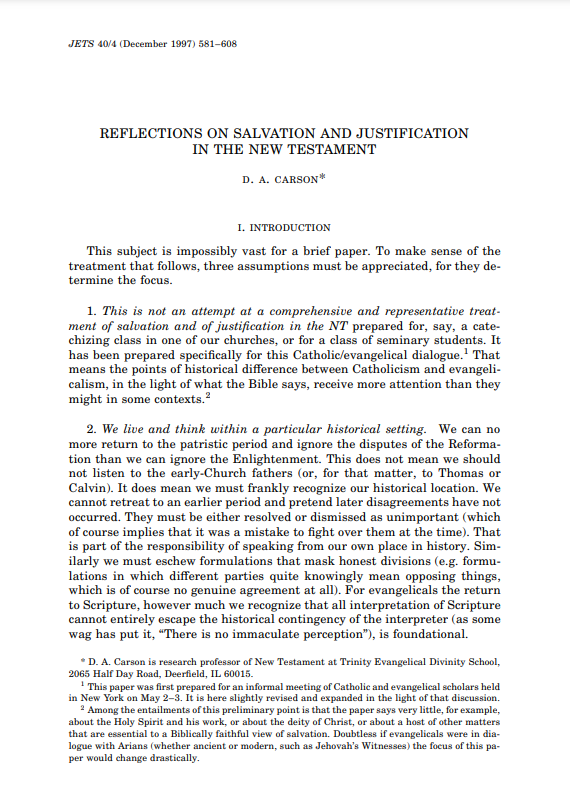A Brief Article Summary from Books At a Glance
by Steve West
Note: You can access the entire article here.
Summary
This paper was first presented at an informal gathering of evangelical and Roman Catholic scholars, and it is shaped according to that context. There is a great deal of diversity amongst evangelicals on these issues, as there is amongst Roman Catholics. Evangelicals and Catholics share the same view of the Bible’s main narrative, and this results in a shared worldview and broad agreement on what the Bible means when it speaks of salvation. We need to recognize that biblical terms can be used with a range of meanings, and often our theological definition of a term like justification is narrower than the biblical usage which can vary from one author to the next and even within the writings of an individual author depending on context. Our definitions in systematic theology tend to be more technical than the biblical authors’ usages.
Many evangelicals in the West have read certain texts (e.g. Galatians 3) far more individualistically than the text warrants. The covenantal nomism of Sanders and the new perspective on justification are bearing influence, but we will bypass those discussions here. Real unity cannot be based on reductionistic slogans, but only on substantive agreement.
When the Bible speaks about God and salvation it does so in an enormous variety of ways, yet when God is presented as the Savior the obverse is that the lost condition of humanity is highlighted as well. OT themes and depictions of God saving his people are developed and applied to Jesus in the NT. Our plight is based on our rebellion against God. History is linear in the biblical worldview, moving towards eschatological consummation. Through Christ, we have an inaugurated eschatology, where the final verdict has been pronounced on the basis of his work. Prophecies and typologies find their fulfillment in Christ’s suffering and death. The redemptive events in the biblical narrative that bring salvation climax in the cross and resurrection. Biblical lines about salvation trace again and again to the cross and resurrection. . . .
[To continue reading this summary, please see below....]The remainder of this article is premium content. Become a member to continue reading.
Already have an account? Sign In
Buy the books

REFLECTIONS ON SALVATION AND JUSTIFICATION IN THE NEW TESTAMENT, by D. A. Carson